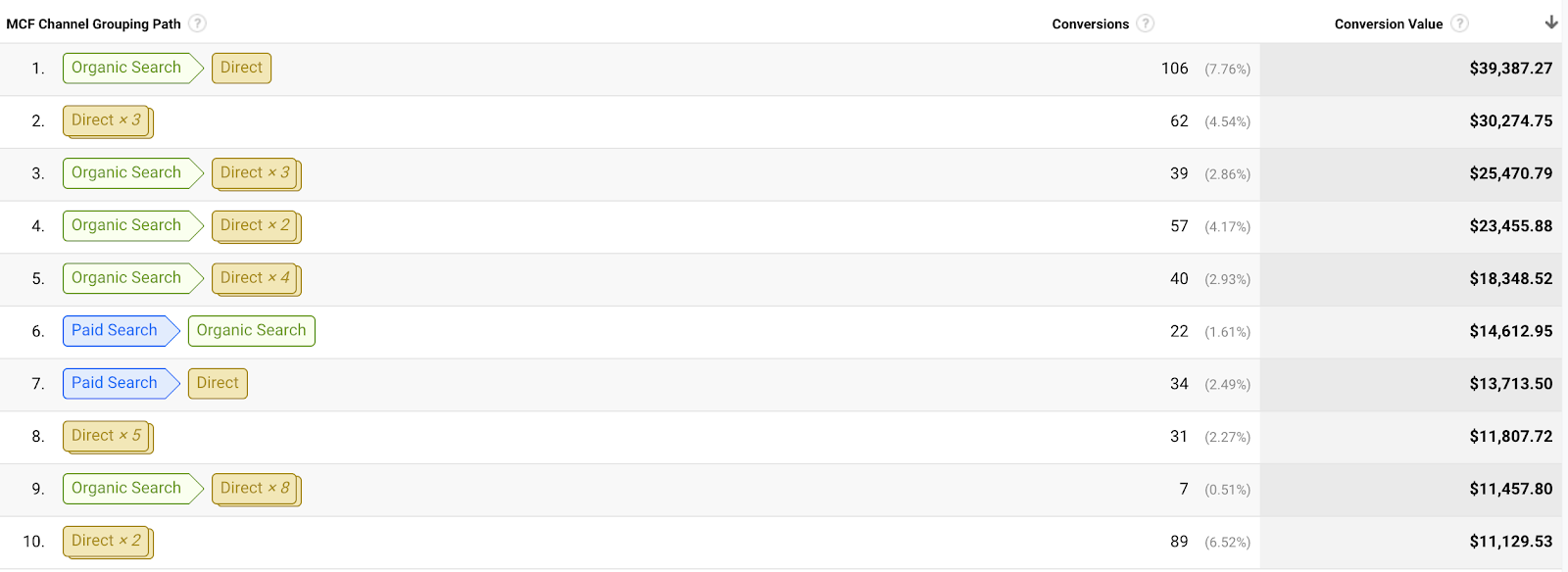
Data is instrumental in developing sound digital marketing strategies. That’s exactly why every direct booking website needs e-commerce tracking. How many direct bookings your website generates is only part of the picture: it’s about diving into the data to find out where exactly your revenue comes from, whether it be a paid search campaign, a Youtube advertisement, or even a blog post. Armed with the right knowledge, you can direct your marketing efforts where they matter most.
By utilizing e-commerce tracking, you can:
- Track reservations revenue generated from your website each day
- Discover what channels drive the most traffic and lead to more bookings
E-commerce tracking puts you in the shoes of potential travelers to see how they interact with your website. It’s more than knowing your website generated a specific number of bookings; it’s discovering how people came to your website in the first place and what made them click the “Book now” button.
E-commerce tracking follows the successes (and failures) of marketing campaigns, allowing vacation rental professionals to make data-driven decisions and adjust strategy moving forward. For example, maybe the data shows that a certain paid advertisement campaign is driving traffic to the website, but that traffic is leaving quickly and not booking. With that information, you can shift the advertising budget to a campaign that is creating more conversions.
Another essential feature in e-commerce tracking is the ability to see exactly where travelers are searching and how many “touchpoints” it takes to get them to book. According to a study by Verto Analytics, a traveler goes through an average of 45 touchpoints – on several devices and types of website – on their way to purchasing their accommodations.
These journeys, called conversion paths, show how a traveler got to your site and what marketing channels they encountered prior to booking. For instance, they might find your website through an organic search and then book a property after being retargeted by dynamic display advertising. Knowing the route travelers take to booking further helps you determine which marketing strategies are working for your business.
It’s possible that you have e-commerce tracking capabilities already – many websites, including Bluetent’s Rezfusion sites, are set up with a tracking feature in the initial build. Even if you already have e-commerce tracking, it can be confusing to know how to utilize the data. Bluetent’s digital marketing team can help you analyze your tracking details and create a data-driven marketing plan that yields results.
For further information on using data to drive bookings, check out this VRM Intel article by Jinnie Templin, Bluetent’s Digital Marketing Sales Specialist. If you’re interested in getting started, contact sales@bluetent.com today.


 Your California Privacy Choices
Your California Privacy Choices